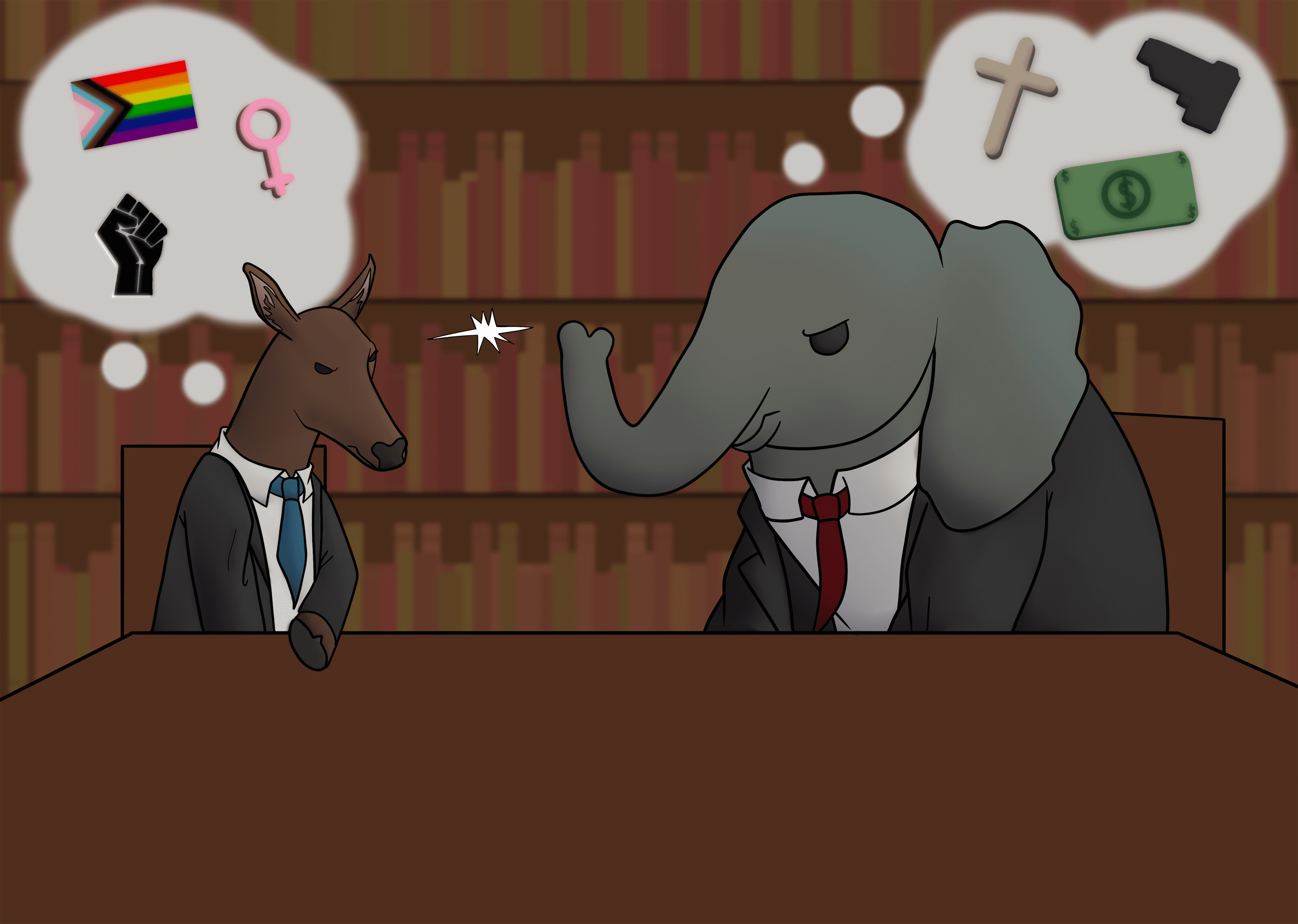With the midterm elections just concluding and the constant turmoil of the presidential election in two years time, it is not far-fetched to assume grandma’s stuffing won’t be the only talk at the table in a couple of weeks.
Holidays are intended to bring people together, yet that does not mean necessarily uniting them unless you count agreeing on which family member’s food contribution is the worst. We see such occasions have the capacity to foster tensions and potential fallouts with loved ones–all because of political discourse.
Most of us can confirm that politics is framed as a volatile thing. I would like to ask, what exactly is it about politics that makes it temperamental?
To note, I do recognize the levity of this topic. I understand that a 600-word article will not change minds; in fact, I do not wish for that.
Instead, I wanted to write about this because of the anticipated conversations that tend to arise at the dinner table. I wish for the reader to consider how we go about processing it all. At most, I hope the reader will leave thinking about these queries.
This leads me to the first question I will offer: are we talking about politics or “politics”?
That is to say, are we concerning ourselves with the policies themselves? This includes its components, such as the infrastructures they are affiliated with, duration, cost and sustainability of it all.
Or are we engaging with the interpretation of these policies through the lense of politicians? Specifically, when engaging with politicians’ content, do we find ourselves getting answers to questions about policies? Or do we become overrun with emotions at the implication of a particular plan disrupting our life?
Politicians are human, after all, and their occupation heavily relies on having strong support from citizens.
Here is an overarching question: do we even get a chance to ask the logistical questions? Or is the format in which politics is presented preventing us from being able to even consider these questions?
We could argue that presentation makes it explosive. Maybe the ideas discussed in politics are just innately explosive. In this way, the ideas themselves are loaded with fuel, and we create a spark by engaging with them.
On the other end of things, maybe we have just become accustomed to hearing these ideas presented with an already-burning momentum.
I am aware of the tedious line of thinking we are exploring. These are big questions that can be approached in multiple ways…which is precisely why I am asking them.
Sometimes, a catalytic event can force us to question what we previously established. Needless to say, there has been so much production in the past few years that perhaps the noise of everything political caused us to shut down altogether.
I might argue that we actually do need to diffuse the conversation. We may be so ingrained in our beliefs, that attempting to approach these ideas sans emotions is nonviable.
As for my own interpretation, I believe there is one thing that we can deduce to explain the passion that accompanies politics. That is the simple, yet powerful fact that politics is power.
Whoever wields that power determines future outcomes for you and those who follow afterward. Power is control, and managing control might be one of the rawest experiences that come with being human.
We might say then, that it is rational to be concerned with who holds that power, and what their intentions are in regard to the evolution of our society.
In other words, maybe the emotion that accompanies politics is not as infernal as we think it.
It could be that we are (understandably and correctly) passionate about politics, but easily lose track of what it is we are fighting for. Who and what exactly, are we concerned about?
Are we ardent about politics or “politics”?
I don’t know about you, but that is something that can certainly fill me up.



